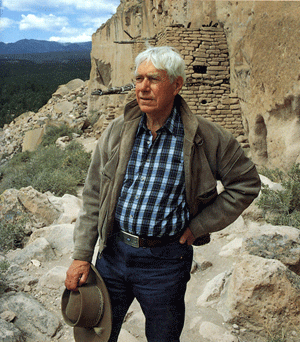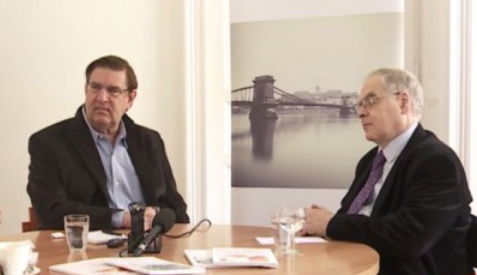This is an excellent dialogue between George Gilder and Peter Thiel, from 2012, regarding two different versions of what the future will look like.
It is a little over an hour, and I highly recommend you listen to it.
Gilder is a thorough-going optimist. He sees a world where everything is good and getting better, and critiques of technological change are generally wrong-headed. That is a brutal over-simplification, of course. Gilder is a seasoned speaker, debater and writer. He makes a decent case, better than I am suggesting here.
Theil makes a more subtle case. He says that technology, other than the technology has stalled for decades. He says that the fields of engineering that deal with “stuff” have been — and this is a strong word — “outlawed.” As a result, the only areas where technological change is happening are in finance and computing. Nuclear engineering, for example, would have been a suicidal career choice if you made it a generation ago.
So, Theil is one hand a pessimist. He sees a decay in the rate of technological development, a decay in standards of living and real wages, a decline in optimism and expectations for a better future.
However, he does not conclude, “so, we are doomed.”
What he says instead is that we cannot pretend that technological progress grows on trees. He says that we need to address the obstacles to technological change which are thwarting the potential for a better future.
All of that seems correct.
The vision Jim Bennett and I depict in America 3.0 is one in which the excessive regulatory obstacles to technological progress, capital formation, and new business formation have been greatly reduced. Under that scenario, much of the halted progress in the world of “stuff” should resume. This is particularly the case because, as Gilder correctly notes, the extraordinary advances in computing power will enhance the potential of all of these areas. The potential for rapid development, leading to rapid economic growth and rising living standards, is within our reach. It is being held back by political and regulatory obstacles, not technical or scientific ones.
That has to change. But, it might not. Nothing is inevitable.
It is up to us to make it happen.
I have not yet read Thiel’s new book Zero to One: Notes on Startups, or How to Build the Future. It is en route from Amazon as I type this, however. Here is the web page for the book.



